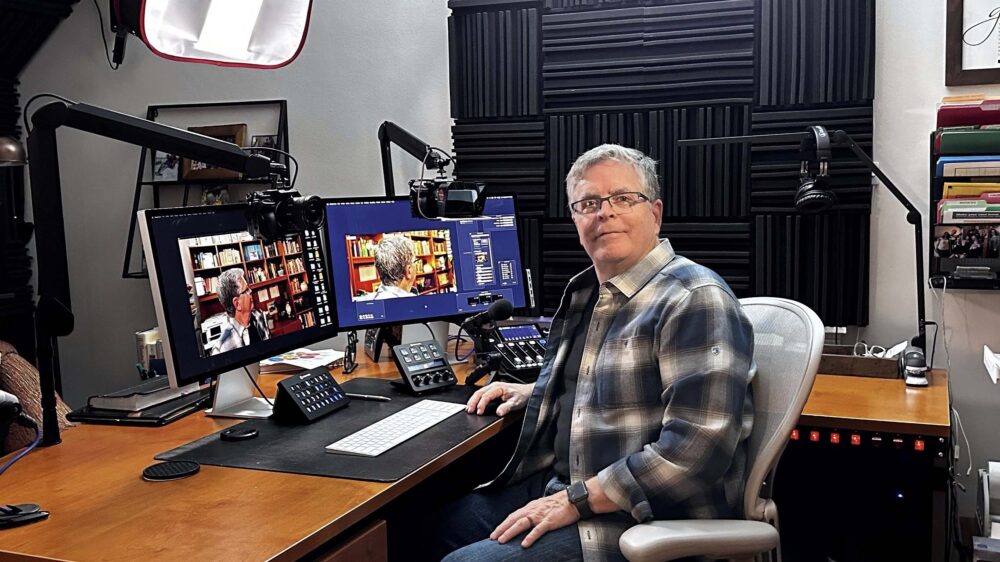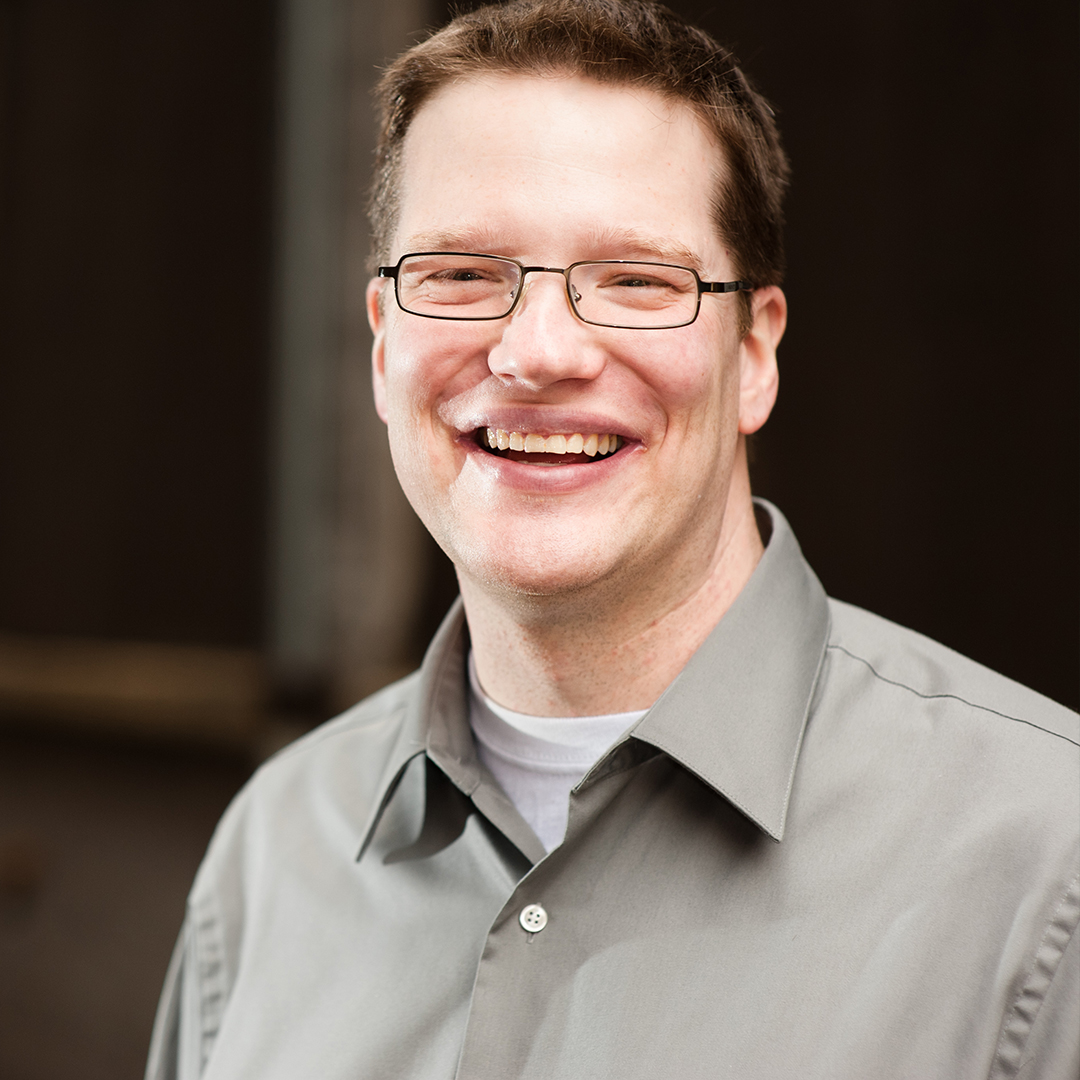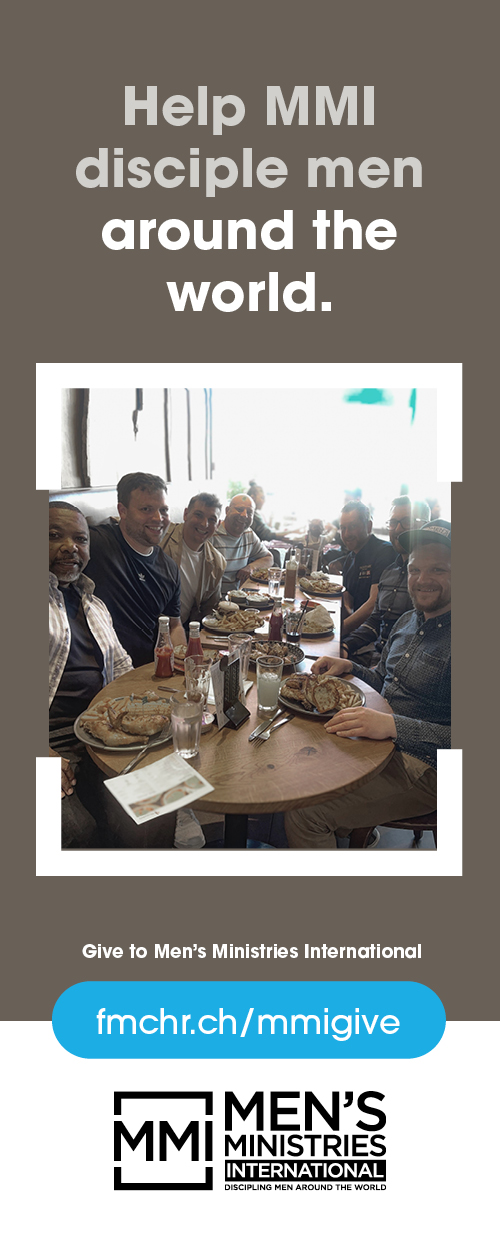Doug Newton has served the Lord faithfully for decades as a pastor. His experiences have also included co-founding the National Prayer Ministry, serving as the senior editor of Light + Life and the president of Oakdale Christian Academy, and writing the “Fresh Eyes” book series for a leading Christian publisher.
While pastoring and serving in different ministry roles, he noticed that things weren’t going as well as expected for many Christ-followers.
“A lot of Christians, if you catch them in a moment of honesty, they would say, ‘I do not find that the Christian life measures up to its publicity brochures,’” said Newton, who added in an interview with Light + Life that many Christians’ experiences with prayer and Bible reading especially seem to fall short.
_
“How can we help people experience prayer that works?” – Doug Newton
_
“I’ve always been wired as the kind of person who, if something doesn’t work, I want to figure out how to fix it,” he said. “I hadn’t been a pastor for longer than maybe four or five years, and I started to recognize that this was the problem. It’s like a person has a car that doesn’t work right, and the church is this garage that we bring it to — to get it fixed — and then they go home, and the car still doesn’t run right.”

Doug and his wife, Margie.
He and his wife, Margie, began focusing on: “How can we help people experience prayer that works?” Rather than a selfish definition of prayer working, they focused on “connecting with God in a way where you are a significant instrument in His hand.”
This prayer focus soon led to helping “people have a fresh relationship with God and His Word,” but it seemed some people were “getting stale bread” instead of “fresh baked bread” when they turned to Scripture.
“That resulted in the ‘Fresh Eyes’ books with David C Cook, where I’m trying to pass on to people: Here are ways to have fresh encounters with the Lord and truth in His word, by not seeing it the way that you’ve always seen it, where you come to it in a way where you see it with fresh eyes,” he said.
Now Newton has launched a new effort, Fresh Impact, to “develop resources to help any person improve their character and live for the good of others.” Fresh Impact also provides “resources designed specifically for developing the character and life of Christian disciples.”
The approach came because of a realization that may initially sound shocking from this experienced pastor: “There is this element of character in living the Christian life that is not supplied by God — at least directly.”
Newton explained that Christians elevate the fruit of the Spirit (love, joy, peace, forbearance, kindness, goodness, faithfulness, gentleness and self-control) to prominence when discussing character. This elevation is good although these characteristics “are in that list in Galatians not to say that Christians aren’t the only ones who can manifest these traits. … We’re not the only ones. We’re the only ones that can do it by the fruit of the Spirit when we’re not getting what we want.”
While looking at the fruit, Newton began to wonder where other character traits such as courage, generosity, honesty, gratitude, humility and integrity are.
“I’ve come to believe that those other character traits — which are not in the fruit of the Spirit— are uniquely traits of the moral conscience, which is the capacity that God has created in every human being to detect, to wonder at, and to inculcate in their life, but it has to be shaped in them. It’s not something that gets dumped in them by the infusion of the Holy Spirit,” Newton said. “It’s the way God designed human beings to have their character shaped, and that’s by parenting, by surrounding culture, by heroes.”
Newton emphasized that he is “still urging people to seek and find the indispensable, primary work of the Holy Spirit for our transformation,” and Scripture reveals “it is God who works in you to will and to act in order to fulfill his good purpose” (Philippians 2:13). We are also told to “make every effort” to add positive qualities to keep from “from being ineffective and unproductive” (2 Peter 1:5–9).
Because of cultural changes in the last 50 years, moral traits are no longer instilled through some families, educational settings, and entertainment options. Meanwhile the media exalt behaviors that are not virtuous.
_
“The heart of it for me at this stage of my life is to work on this whole area of character.” – Doug Newton
_
“You don’t have young people who are surrounded at their early formative years with things that shape their character,” said Newton, who began noticing in the 1980s that “most of the problems that I’m facing in the church right now are not directly spiritual problems. They’re just people who don’t follow through on something they promised to do. They’re people who don’t express gratitude. They’re people who don’t have an impulse to be generous. They’re people who aren’t courageous enough to just tell somebody the truth about themselves rather than putting on a fake front.”
Lack of prayer and Bible reading can result from a lack of these character traits rather than spiritual problems. As Jesus said, “The spirit is willing, but the flesh is weak” (Matthew 26:41).
As a result, Newton said, “The heart of it for me at this stage of my life is to work on this whole area of character.”
Being a Better Person
Several years ago, Newton began to identify 12 character traits for which Scripture does not promise God will give us. These traits are valuable for both Christians and nonbelievers to develop.
Fresh Impact approaches “a secular world with helpful stuff about how things would improve in your life all the way along if you were able to be a more honest, diligent, generous, grateful, industrious, persevering, respectful, vigorous person,” Newton said.
He developed an assessment module to help people determine which character traits (courage, diligence, generosity, gratitude, honesty, humility, industry, integrity, perseverance, resourcefulness, respect, vigor) they need to improve. A self-assessment survey sends an email letting the participant determine which traits to improve.
Another option is a peer assessment at no additional cost so that a participant can ask “three or four key people in their life to do the same assessment for them, which helps them then have a more honest assessment of where they’re weak or strong in their character,” Newton said.
A person identifies what to improve and then picks a module for that character trait. Newton has created a guidebook of 30 exercises for each trait carefully designed to practice and strengthen that trait in real-life situations.
“Each module teaches people what character is so that they really understand why they’re doing what they’re doing,” said Newton who added that the module provides “background about character development really being habit formation in moral issues.”
_
“No matter how sinful you may think they are, most people long to be a person who’s better than they are.” – Doug Newton
_
The platform offers “ways to improve your character and everything else.” While not explicitly Christian, Newton believes there is an evangelistic quality to it because “we’re Wesleyan. We don’t believe in total depravity.”
Wesleyan Christians “believe that there are not just traces of the image of God left in us,” said Newton who added that people are “absolutely hungry for something that we’ve lost track of. We know it’s there. We just can’t find it any longer, and I think the gospel is all about helping people find what it is that they’ve lost contact with. It’s like amnesia. They don’t even know this identity who they used to be. … No matter how sinful you may think they are, most people long to be a person who’s better than they are.”
He added that his “stealth evangelism in this flagship course is basically to get people — Christian or not — into this environment of: ‘I’m going to work on being a better person.’”
After working to develop character traits and seeing improvement, ”the conscience is going to be quickened like the Bible said,” Newton explained. “We’re going to know more than we’ve ever known before the standard of what honesty really is and what generosity really is. It is higher than we thought, and we fall short and can’t quite make it.”
The basic course ends with an optional video in which Newton shares the gospel. He said most people aren’t looking for a way to heaven these days because “they’ve grown up in a post-Christian, scientific, skeptical world, and all they want to do is know that ‘I can hit this thing about being a person that I want to be,’ and so that’s where the gospel hits. That’s the target that I shoot for.”
Creating character resources isn’t easy.
“I’m doing the hardest work I’ve ever done in my life,” said Newton, who added that things became even busier when he and Margie recently stepped out of retirement to become the senior pastors of Hillside Church in Evanston, Illinois.
_
“Discipleship is not about pumping people’s head full of catechistic knowledge and theology … but the heart of discipleship is just people who live love like Jesus.” – Doug Newton
_
How Christ Is Formed in Us
Newton also is working to create other resources for a Christian context to address the question: “Is it wrong to think that there’s something we’re supposed to do to help ourselves be better people?”
He is currently finishing a course on “How Christ Is Formed in God’s People.” Some people expect the Holy Spirit to do all of the work of character development if they read the Bible and pray, but Newton believes: “Character development is absolutely crucial for the transformative work of God.”
His message for the church is that “discipleship is not about pumping people’s head full of catechistic knowledge and theology (although that’s got to be there), but the heart of discipleship is just people who live love like Jesus,” he explained. “From the very beginning, the whole incarnation happened with a combination of what the human being could offer and what the Holy Spirit could offer.”

Doug Newton hosts his podcast, “At the Intersection With Doug Newton.”
At the Intersection
Newton also hosts a podcast called “At the Intersection With Doug Newton” that explores “where Scripture, culture, and character meet.” He said the podcast acts as “a portal for people to get exposed to the whole issue of how so many things boil down to character.”
_
“It’s like we expect sinners not to be sinful, and so we get mad at them. In many respects, they can’t do anything differently.” – Doug Newton
_
Each episode leads with a cultural observation and, unlike the character development modules, Scripture is clearly present. For each cultural issue, Newton said he finds “something in Scripture that speaks to that issue, but that leads to an area of character that we need to work on as individuals, because Christians are among the largest category of culprits when it comes to culture bashing and having a bad attitude.”
He pointed to the anger some Christians express: “It’s like we expect sinners not to be sinful, and so we get mad at them. In many respects, they can’t do anything differently.”
Each episode ends with a way to make a difference in our culture using a character trait.
Rather than shaking our fists at the television, Newton said, “we’ve got to find a way to engage our culture with grace.”
Click here to learn more about the Fresh Impact Online School.
+

Jeff Finley is this magazine’s executive editor. He joined the Light + Life team in 2011 after a dozen years of reporting and editing for Sun-Times Media. He is a member of John Wesley Free Methodist Church where his wife, Jen, serves as the lead pastor.











